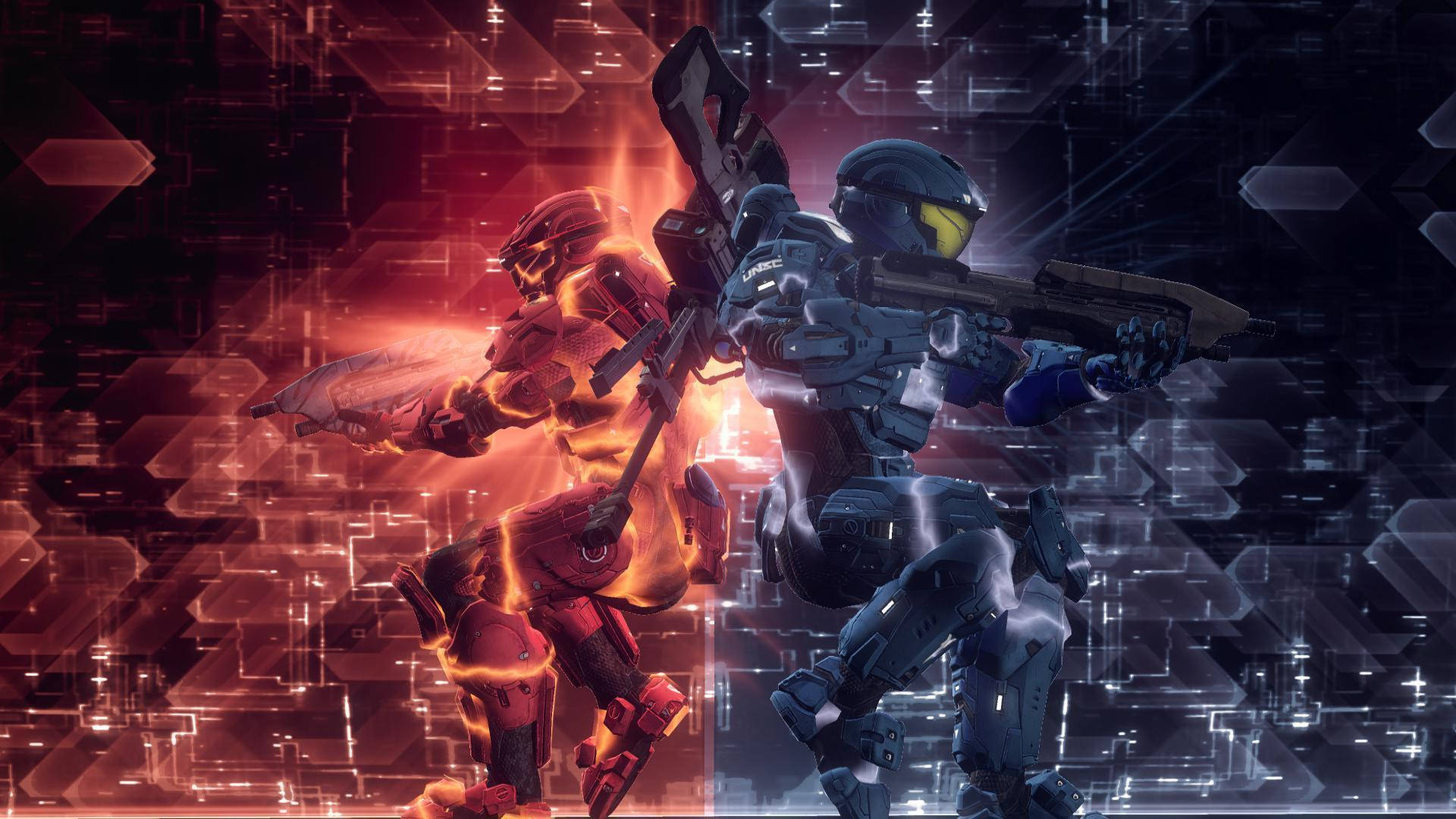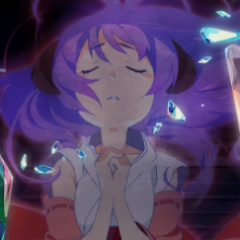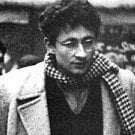-
Posts
1010 -
Joined
-
Last visited
Retained
-
Member Title
President of the Republic
Profile Information
-
Gender
Male
-
Location:
Texas
-
Interests
Proud Texan and a Proud Army Vet (31B)
-

-
Leader Name
Church
-
Nation Name
Project Freelancer
-
Nation ID
21778
-
Alliance Name
Atlas Corporation
Contact Methods
- Discord Name: Church
Recent Profile Visitors
3895 profile views
Church's Achievements

Exalted Member (7/8)
192
Reputation
-
August 8th, 2023 Church President of the Board Board of Directors Atlas Corporation Subject: Apology to Black Skies and Palsada Dear Orbis Community, It has come to my attention that before our rebrand to Atlas Corporation, that the former alliance known as Providentia. Knowingly and Openly violated the terms of Peace brought forth by Black Skies in the most recent war between our two entities. Our violation consisted of openly attacking Palsada immediately following the signing of the accords. We hereby issue this apology to Palsada, Black Skies, and to the Orbis Community as a whole for our actions. Furthermore, we recognize that we acted in bad faith in the way that our FA was conducted. Which is why, henceforth, under the new name and leadership structure. We will be conducting our FA with dignity and honesty. We hope now that the matter has been resolved that we can move forward to a more positive side of affairs with the Orbis community as a whole, but more importantly with Black Skies and Palsada. Signed, President Church Board of Directors Atlas Corporation
- 10 replies
-
- 11
-

-

-

-

-
Church changed their profile photo
-
President Enrique called on the Congress of the Union to convene for a Special Hearing, this was approved by the Standing Committee and later that day, Congress convened. During this special hearing, the President announced a plan to fix the Economic issues of the country, with slow growth and little time left in his six year Presidency. Time was not an ally, though progress had been made in other fields such as the War on Drugs, economically, especially regarding the Mexican Currency. Seemed to had taken a back track over his tenure, in this speech to Congress, he has urged Congress to allow the recalling of all currency, when spent by ordinary citizens, it would head back to the Central Bank of Mexico. There, more strict regulations on how much would be printed and sent back out, hopefully boosting the value. Nationally, he also urged tariffs to be lowered on imported goods for the time being to lower the demand and with that the prices. Finally, he wanted the minimum wage lowered to be coincide with the raising of the value and lowering the amount out there. Within days, Congress had the Bill drafted and the Act would soon be passed. Hopefully taking effect soon, though it would take years. Hoping the initiative would work, and assuming it would. President Enrique would go down as the President who took the first major steps in fixing the issues at hand. Part of the Bill, was including another raising in funds for the Federal Police, to continue the fight to end the major drug cartels within the country. With this, investigations into the corruption within the Federal Police would begin. Rooting out the bad from the good was a priority during the Tenure of the President's term, finally an Act would be passed regarding it. President Enrique standing to round of clapping from members of Congress from all parties
- 1 reply
-
- 2
-

-
United Mexican States Mexico (Spanish: México [ˈmexiko]), officially the United Mexican States (Spanish: Estados Unidos Mexicanos), is a federal republic in the Central-Northern portion of South America. It is bordered to the north by the the Golf of Mexico; to the south by indigenous land, east by the Atlantic Ocean and west and south by more Indigenous. Covering over a couple million square kilometers, the nation is the largest country in the Americas by total area and the 5th largest independent state in the world. It is also the only recognized and modern nation within South America. With an estimated population of over 150 million, the country is the one of the most populous and the most populous Spanish-speaking state in the world while being the most populous nation in South America. Mexico is a federation comprising 31 states and a special federal entity that is also its capital and most populous city. Other metropolises include Guadalajara, León, Monterrey, Puebla, Toluca, and Tijuana. Pre-Columbian Mexico dates to approximately 8,000 BC, is identified as one of seven cradles of civilization and was home to many advanced Mesoamerican civilizations, such as the Olmec, Toltec, Teotihuacan, Zapotec, Maya and Aztec before first contact with Europeans. In 1521, the Spanish Empire conquered and colonized the territory from its politically powerful base in Mexico-Tenochtitlan, which was administered as the viceroyalty of New Spain. Three centuries later, the territory became the current nation following recognition in 1821 after the colony's Mexican War of Independence. The tumultuous post-independence period was characterized by economic inequality and many political deep changes. The Pastry War, the Franco-Mexican War, a civil war, two empires and a domestic dictatorship occurred through the 19th century. The dictatorship was overthrown in the Mexican Revolution of 1910, which culminated with the promulgation of the 1917 Constitution and the emergence of the country's current political system. Anthem: "Himno Nacional Mexicano" Capital City: Mexico City Official Language: None at Federal Level, Spanish (De Facto) Recognized Languages: 68 Native Languages Demonym: Mexican Executive: President; Enrique Peña Nieto Secretariat of the Interior; Alfonso Navarrete Prida Secretariat of Foreign Affairs; Luis Videgaray Caso Secretariat of Finance and Public Credit; José Antonio González Anaya Secretariat of National Defense; Salvador Cienfuegos Zepeda Secretariat of Navy; Vidal Francisco Soberón Sanz Secretariat of Economy; Ildefonso Guajardo Villarreal Secretariat of Social Development; Luis Enrique Miranda Attorney General; Raúl Cervantes Andrade Secretariat of Civil Service; Arely Gómez González Secretariat of Communications & Transportation; Gerardo Ruiz Esparza Secretariat of Labor & Social Welfare; Roberto Rafael Campa Cifrián Secretariat of Environment & Natural Resources; Rafael Pacchiano Alamán Secretariat of Energy; Pedro Joaquín Coldwell Secretariat of Agriculture; José Calzada Rovirosa Secretariat of Public Education; Aurelio Nuño Mayer Secretariat of Health; José Narro Robles Secretariat of Tourism; Enrique de la Madrid Cordero Secretariat of Agrarian, Land, and Urban Development; Rosario Robles Berlanga Secretariat of Culture; Rafael Tovar y de Teresa Legislative: Congress of the Union Senate of the Republic: (Upper House)(128 Seats) President of the Senate; Ernesto Cordero Arroyo 55 Seats to PRI 34 Seats to PAN 19 Seats to PT 7 Seats to PRD 6 Seats to PVEM 7 Seats to Independents(Non-Party) Chamber of Deputies: (Lower House)(500 Seats) President of the Chamber of Deputies; Jorge Carlos Ramírez Marín 203 Seats to PRI 108 Seats to PAN 52 Seats to PRD 50 Seats to MORENA 39 Seats to PVEM 20 Seats to MC 13 Seats to PANAL 10 Seats to PES 5 Seats to Independents(Non-Party) Judicial: Supreme Court of Justice Supreme Court of Justice of the Nation: (11 Ministers) President of the Court; Luis María Aguilar Morales Ministers; Luis María Aguilar Morales, Margarita Beatriz Luna, Fernando Franco González-Salas, Arturo Zaldívar Lelo de Larrea, Jorge Mario Pardo Rebolledo, Alfredo Gutiérrez Ortiz Mena, Alberto Pérez Dayán, Eduardo Medina-Mora Icaza, Javier Laynez Potisek, Norma Lucía Piña Hernández Government: The United Mexican States are a federation whose government is representative, democratic and republican based on a presidential system according to the 1917 Constitution. The constitution establishes three levels of government: the federal Union, the state governments and the municipal governments. According to the constitution, all constituent states of the federation must have a republican form of government composed of three branches: the executive, represented by a governor and an appointed cabinet, the legislative branch constituted by a unicameral congress and the judiciary, which will include a state Supreme Court of Justice. They also have their own civil and judicial codes. The federal legislature is the bicameral Congress of the Union, composed of the Senate of the Republic and the Chamber of Deputies. The Congress makes federal law, declares war, imposes taxes, approves the national budget and international treaties, and ratifies diplomatic appointments. The federal Congress, as well as the state legislatures, are elected by a system of parallel voting that includes plurality and proportional representation. The Chamber of Deputies has 500 deputies. Of these, 300 are elected by plurality vote in single-member districts (the federal electoral districts) and 200 are elected by proportional representation with closed party lists for which the country is divided into five electoral constituencies. The Senate is made up of 128 senators. Of these, 64 senators (two for each state and two for Mexico City) are elected by plurality vote in pairs; 32 senators are the first minority or first-runner up (one for each state and one for Mexico City), and 32 are elected by proportional representation from national closed party lists. The executive is the President of the United Mexican States, who is the head of state and government, as well as the commander-in-chief of the Mexican military forces. The President also appoints the Cabinet and other officers. The President is responsible for executing and enforcing the law, and has the power to veto bills. The highest organ of the judicial branch of government is the Supreme Court of Justice, the national supreme court, which has eleven judges appointed by the President and approved by the Senate. The Supreme Court of Justice interprets laws and judges cases of federal competency. Other institutions of the judiciary are the Federal Electoral Tribunal, collegiate, unitary and district tribunals, and the Council of the Federal Judiciary. Politics: Three parties have historically been the dominant parties in Mexican politics: the National Action Party: a conservative party founded in 1939 and belonging to the Christian Democrat Organization of America; the Institutional Revolutionary Party, a center-left party and member of Socialist International that was founded in 1929 to unite all the factions of the Mexican Revolution and held an almost hegemonic power in Mexican politics since then; the Party of the Democratic Revolution: a left-wing party, founded in 1989 as the successor of the coalition of socialists and liberal parties. Law Enforcement: Public security is enacted at the three levels of government, each of which has different prerogatives and responsibilities. Local and state police departments are primarily in charge of law enforcement, whereas the Mexican Federal Police are in charge of specialized duties. All levels report to the Secretaría de Seguridad Pública (Secretary of Public Security). The General Attorney's Office (Procuraduría General de la República, PGR) is the executive power's agency in charge of investigating and prosecuting crimes at the federal level, mainly those related to drug and arms trafficking, espionage, and bank robberies. The PGR operates the Federal Ministerial Police (Policia Federal Ministerial, PMF) an investigative and preventive agency. While the government generally respects the human rights of its citizens, serious abuses of power have been reported in security operations in the southern part of the country and in indigenous communities and poor urban neighborhoods. The National Human Rights Commission has had little impact in reversing this trend, engaging mostly in documentation but failing to use its powers to issue public condemnations to the officials who ignore its recommendations. By law, all defendants have the rights that assure them fair trials and humane treatment; however, the system is overburdened and overwhelmed with several problems. Despite the efforts of the authorities to fight crime and fraud, most Mexicans have low confidence in the police or the judicial system, and therefore, few crimes are actually reported by the citizens. In 2008, president Calderón proposed a major reform of the judicial system, which was approved by the Congress of the Union, which included oral trials, the presumption of innocence for defendants, the authority of local police to investigate crime—until then a prerogative of special police units—and several other changes intended to speed up trials. Crime: Drug cartels are a major concern in Mexico. Mexico's drug war has left over 60,000 dead and perhaps another 20,000 missing. The Mexican drug cartels have as many as 100,000 members. Mexico's National Geography and Statistics Institute estimated that in 2014, one out of five Mexicans was victim of crime in some form. President Felipe Calderón made abating organized crime one of the top priorities of his administration by deploying military personnel to cities where drug cartels operate. This move was criticized by the opposition parties and the National Human Rights Commission for escalating the violence, but its effects have been positively evaluated by the US State Department's Bureau for International Narcotics and Law Enforcement Affairs as having obtained "unprecedented results" with "many important successes". Since President Felipe Calderón launched a crackdown against cartels in 2006, more than 28,000 alleged criminals have been killed. Of the total drug-related violence 4% are innocent people, mostly by-passers and people trapped in between shootings; 90% accounts for criminals and 6% for military personnel and police officers. More than 100 journalists and media workers have been killed or disappeared since 2000, and most of these crimes remained unsolved, improperly investigated, and with few perpetrators arrested and convicted. Foreign Affairs: The foreign relations of Mexico are directed by the President of Mexico and managed through the Ministry of Foreign Affairs. The principles of the foreign policy are constitutionally recognized in the Article 89, Section 10, which include: respect for international law and legal equality of states, their sovereignty and independence, non-intervention in the domestic affairs of other countries, peaceful resolution of conflicts, and promotion of collective security through active participation in international organizations. Since the 1930s, the Estrada Doctrine has served as a crucial complement to these principles. Military: The Mexican Armed Forces have two branches: the Mexican Army (which includes the Mexican Air Force), and the Mexican Navy. The Mexican Armed Forces maintain significant infrastructure, including facilities for design, research, and testing of weapons, vehicles, aircraft, naval vessels, defense systems and electronics; military industry manufacturing centers for building such systems, and advanced naval dockyards that build heavy military vessels and advanced missile technologies. In recent years, Mexico has improved its training techniques, military command and information structures and has taken steps to becoming more self-reliant in supplying its military by designing as well as manufacturing its own arms, missiles, aircraft, vehicles, heavy weaponry, electronics, defense systems, armor, heavy military industrial equipment and heavy naval vessels. Since the 1990s, when the military escalated its role in the war on drugs, increasing importance has been placed on acquiring airborne surveillance platforms, aircraft, helicopters, digital war-fighting technologies, urban warfare equipment and rapid troop transport. 1.875 Million Ground Forces 37,500 Armored Vehicles 6,750 Aircraft (Classified) Ships Administrative Districts: The United Mexican States are a federation of 31 free and sovereign states, which form a union that exercises a degree of jurisdiction over Mexico City and other territories. Each state has its own constitution, congress, and a judiciary, and its citizens elect by direct voting a governor for a six-year term, and representatives to their respective unicameral state congresses for three-year terms. Mexico City is a special political division that belongs to the federation as a whole and not to a particular state. Formerly known as the Federal District, its autonomy was previously limited relative to that of the states. It dropped this designation in 2016 and is in the process of achieving greater political autonomy by becoming a federal entity with its own constitution and congress. The states are divided into municipalities, the smallest administrative political entity in the country, governed by a mayor or municipal president (presidente municipal), elected by its residents by plurality. Economy: Mexico has one of the largest nominal GDPs along with the largest by purchasing power parity. GDP annual average growth for the period of 1995–2002 was 5.1%. Mexico's Gross Domestic Product (GDP) in purchasing power parity (PPP) was estimated at US $2.2602 trillion in 2015, and $1.3673 trillion in nominal exchange rates. Mexico's GDP in PPP per capita was US $18,714.05. Mexico is now firmly established as an upper middle-income country. After the slowdown of 2001 the country has recovered and has grown 4.2, 3.0 and 4.8 percent in 2004, 2005 and 2006, even though it is considered to be well below Mexico's potential growth. Furthermore, after the 2008–2009 recession, the economy grew an average of 3.32 percent per year from 2010 to 2014. Culture: Mexican culture reflects the complexity of the country's history through the blending of indigenous cultures and the culture of Spain, imparted during Spain's 300-year colonization of Mexico. Exogenous cultural elements have been incorporated into Mexican culture as time has passed. The Porfirian era (el Porfiriato), in the last quarter of the 19th century and the first decade of the 20th century, was marked by economic progress and peace. After four decades of civil unrest and war, Mexico saw the development of philosophy and the arts, promoted by President Díaz himself. Since that time, as accentuated during the Mexican Revolution, cultural identity has had its foundation in the mestizaje, of which the indigenous (i.e. Amerindian) element is the core. In light of the various ethnicities that formed the Mexican people, José Vasconcelos in his publication La Raza Cósmica (The Cosmic Race) (1925) defined Mexico to be the melting pot of all races (thus extending the definition of the mestizo) not only biologically but culturally as well. Religion: The 2010 census by the Instituto Nacional de Estadística y Geografía (National Institute of Statistics and Geography) gave Roman Catholicism as the main religion, with 83% of the population, while 10% (10,924,103) belong to other Christian denominations, including Evangelicals (5%); Pentecostals (1.6%); other Protestant or Reformed (0.7%); Jehovah's Witnesses (1.4%); Seventh-day Adventists (0.6%); and members of The Church of Jesus Christ of Latter-day Saints (0.3%). 172,891 (or less than 0.2% of the total) belonged to other, non-Christian religions; 4.7% declared having no religion; 2.7% were unspecified. Health: Since the early 1990s, Mexico entered a transitional stage in the health of its population and some indicators such as mortality patterns are identical to those found in highly developed countries. Mexico's medical infrastructure is highly rated for the most part and is usually excellent in major cities, but rural communities still lack equipment for advanced medical procedures, forcing patients in those locations to travel to the closest urban areas to get specialized medical care. Social determinants of health can be used to evaluate the state of health in Mexico. Demographics: According to estimations made by Mexico's National Geography and Statistics Institute, as of 2017 Mexico has 123.5 million inhabitants making it the most populous Spanish-speaking country in the world. Between 2005 and 2010, the Mexican population grew at an average of 1.70% per year, up from 1.16% per year between 2000 and 2005. Even though Mexico is a very ethnically diverse country, research about ethnicity has largely been a forgotten field, in consequence of the post-revolutionary efforts of Mexico's government to unify all non-indigenous Mexicans under a single ethnic identity (that of the "Mestizo"). As a result, since 1930 the only explicit ethnic classification that has been included in Mexican censuses has been that of "Indigenous peoples". Even then, across the years the government has used different criteria to count Indigenous peoples, with each of them returning considerably different numbers. It is not until very recently that the Mexican government begun conducting surveys that considered the Afro-Mexican and Euro-Mexican population that lives in the country. Ethnicity and Race: Mexico is ethnically diverse; with people of several ethnicities being united under a single national identity. The core part of Mexican national identity is formed on the basis of a synthesis of cultures, primarily European culture and indigenous cultures, in a process known as mestizaje. Mexican politicians and reformers such as José Vasconcelos (promoter of the cosmic race) and Manuel Gamio (promoter of indigenismo) were instrumental in building a Mexican national identity on the concept of mestizaje. Current Issues: Mexican War on Drugs, Southern Mexico was almost lawless until the Mexican Declaration of War on the Various Drug Cartels. Since then the Armed Forces have seized control and the Policia Federal have started cracking down. Though many areas still are influenced by the Cartels, some believe the UMS will soon be taking them down. Protection of South America, Much of South America is ran by individual tribes and indigenous peoples. Mexico has since declared Colonization of South America by Foreign Powers unlawful and will not recognize any colony. With that, poor treatment of the Indigenous populations will be seen as an act of war. Some portions of South America are under military administration of the Mexican Armed Forces. Training, the Armed Forces have now since been upgraded and with that, some declare Mexico to be a emerging global power. Training of the troops has been on the rise with more rigorous courses. Newer batches fresh out of training have seen to be tougher, with that, many veteran troops are also being sent back to training. The Federal Police have also seen the growth of forces, and training is starting to protized as well, the Federal Government has compared their training to some military training of smaller countries. Infrastructure, with the economy starting to slow, some change is being needed, the current President has started programs that will soon take effect which will make much of the country more developed while maintaining the natural beauty of the nation. Presidential Election near, Some have stated if the next President is elected from the same party as the current, in the upcoming elections that the country will hit a major downhill, Opposition parties have announced their candidates, but the main party, has not declared their candidate. They have through, announced following election, they will begin to crack down on corruption and fight the good fight to make sure Mexico stays a strong democracy.
- 1 reply
-
- 4
-

-

Organic Roleplaying (Applications & Info)
Church replied to Prince Hunter of Bavaria's topic in Organic Roleplay
-

Organic Roleplaying (Applications & Info)
Church replied to Prince Hunter of Bavaria's topic in Organic Roleplay
I'm claiming the 4 provinces to the north of my nation that border Germany, I am also gifting him those to Germany per agreement we made earlier between us -
"Those 20k troops shall be escorted out peacefully with no issues, thank you for informing us on their presence. We look forward to peaceful and beneficial relations in the future."
-

Organic Roleplaying (Applications & Info)
Church replied to Prince Hunter of Bavaria's topic in Organic Roleplay
I don't have any claims next to Russia lol And ok discuss said North Africa because last I checked it's all coolio. Same concept as when I was Rome back like a long as time ago ? Anyway Idk what my GDP or Population is: GDP: 10 trillion dollars Population: 78 million -

Organic Roleplaying (Applications & Info)
Church replied to Prince Hunter of Bavaria's topic in Organic Roleplay
APPLICATION Official nation name: Senātus Populusque Rōmānus Population: N/A GDP: N/A Population density (sq. km): N/A Form of Government: Republic Describe your Nation IC: The Roman Republic, reborn Describe yourself in OOC terms: coolio Please link your lore or other information that is canon: google Rome Have you read, and do you agree to abide by, the rules? (Yes/No): Yes (You must not have a history of continuous rule breaks in the national affairs subforum!) Where on the map do you want to be located? (Using real-world geography/nations, or a self-provided map): You are allowed 75 starting provinces The map should be 75, the little bitty littles that i didn't wanna click though to mess up my map, you get my jist Nation flag link (if you have a specific one you want to be used): -
Senātus Populusque Rōmānus (Official Flag of the Roman Republic) (Official Seal of the Roman Republic) National Information: The Senate and People of Rome, or the Roman Republic as more commonly referred to. Is the oldest surviving republic in the world. The reformation of this great nation came as the result of military victories and alliances formed between city-states all around the peninsula. With time, parts of Western Greece and Northern Africa would be claimed and conquered by the Rome. Over time more and more land would become soundly under control of Rome, people all around the Mediterranean rejoiced over the thought of Rome making a new name for itself. Around this time the first officially written Constitution for Rome would be drafted up. With the new Rome, measures were taken to prevent history repeating itself. This Republic, would last long enough to see a new day in age. Structurally the borders of the Rome are very sound and internally citizens happiness is on the rise as the standard of living has increased majorly as programs are being put in place by the Senate to create more roadways, better housing, provide new energy efficient housing and government funding construction of many places everyday citizens can go to get such things as healthcare. Economically, with a newly formed economy, major debates were held on how much government intervention would be placed on businesses and the stock market. Businesses will follow suite on regulations and will pay workers a fair wage depending on skill set while on the job. Unions are allowed and workers are protected as such. Banks have been regulated on grounds of protection of money but interest rates are pretty lose right now. The market is on the rise and is now open to foreign investors. With a united economy, goods manufacturing is skyrocketing with government the government giving out rewards to companies that produce the most and stay within the national borders. As such, imports are on the low while exportation of goods are increasing. In terms of regarding to military, to safeguard the nation. A strong national military has been established, men who enlist receive major government benefits. As such a flocking of very nationalistic patriots have went to the recruitment stations. In terms of intergovernmental affairs, the Regime and Rome have signed into effect the R&R Military Alliance. Internally, the government is very set and official elections for the first Consuls will be held soon to replace the Interim-Consuls that were appointed by the Roman Senate. The Senate on the other hand has made major strife to secure political and military power over the lands claimed by Rome and as such have done well to take care of the inhabitants of this great Republic. Government: Consul Lucius Brutus, Augustus Collatinus Senate 300 Senators, all hereditary positions passed down from Noble Families Legislative Assemblies Each district has a Legislative Assembly that the people vote on all matters regarding to laws of their district and to get matters of the citizens to the Senate Magistrates Local Judges of each district, hearing on all Judicial Matters Military: The Roman Army, is made up of currently 500,000 Men, operating in Legions of about 10,000 men each, there are 50 Legions within the Army at this time. Also bolstering 20,000 Tanks. Also composing of the Air Corps, which has around 1,000 Aircraft. The Roman Navy, operating 30 ships. 2 carriers, 18 Destroyers, 2 Frigates, 5 cruisers, 3 submarines Foriegn Relations: The Roman Republic has a Defense Treaty with the Regime, no embassies currently exist in Rome besides the Regime and as such no Foreign Ambassadors exist minus the Ambassador to the Regime. Economic relations are willing to be formed as well as the exchange of embassies with any nation.
-
Iron war of succession When the snow falls and the white winds blow the lone wolf dies but the pack survives (OOC: Takes place over a years period of time) The United Kingdom's so they called it. United...was a severe understatement. The Kingdoms of the empire had long vied for control over the throne. To name themselves Iron King...As the British Empire attempted to hold onto its dwindling control the domestic sphere, the revolutionaries in France had inspired some to take up arms against the crown. Ned Stark, the hero of Winterfell and praised former lord of edinburg declared themselves independent of the crown and began what would be called the Iron war of succession. The conflict had begun as a small insurgency in the eyes of the crown. The territories of the North had rebelled time and time again, but their underestimation of Winterfell and their influence on towns across the ‘north’. Years of battling and casualties in the thousands had forced British Troops already tired from conflict in France, Bermuda, and Belgium to collapse and become encircled at the Battle of Cardiff. On that fateful day, Lord Stark had captured 5,000 Royalist Troops, two entire tank regiments, a logistical battalion, and an attack helicopter regiment. The battle of Cardiff would signal a turning point in the stalemate. Moral declined rapidly as Lord Stark marched on British Defensive lines. As the victories grew, the North Eastern realms remained independent from the North, declaring their independence from England. They would become the Vale. In time too, as Lord Stark and his revolutionaries marched on London, the East would declare their independence. Riverrun was established as the East frantically realized the Crown had lost the conflict. Just south, Casterly Rock, The Reach and Dorne, The Stormlands, and Crownlands would be carved up into separate kingdoms. The seven kingdoms were re-established under the terms of surrender in London. As battle ravaged the city, the city was left in ruins when finally Garrison Commander Sir Edward Wellington surrendered his Citadel defenses to Lord Stark. The monarch had retreated to Crownlands and with it, the North would dominate the political carving of The Kingdoms. King's Landing had become the new capital of the Seven Kingdoms with each kingdom being led by a single lord. Over time, the politics of the kingdom were dominated by the North and the South. Even though both served as a single entity of the Seven Kingdoms, the Crownlands and South formed the rival United Kingdom to the North's attempted dominance. What was left of the United Kingdom flet to Ireland renamed to Essos. The United Kingdoms of the Crown had held meager control of Belgium, Bermuda, and Essos. While their leadership over the isles of britannia had become trifled, the sun was yet to set upon the new emergence of the House of Stark as they consolidated control of the isles and poised their spears at Belgium and Essos. The North: The Kingdoms in what was once called Scotland and Wales became the collectivity known as the North. With The Vale, Riverune, and Iron Islands all pledging allegiance to the Lord of Winterfell and His gratefulness Ned of House Stark; King of the North. His Grace, King Ned Stark, King in the North The population of the North gave it a significant advantage in their continued skirmishes with the South. Control of Westeros also embedded their political control of the Seven Kingdoms. Their resources and population advantage however was mitigated by lack of equipment and holding no real legitimacy of lands they owned. Rather based on vassility and lordship did they hold allegiance of the Kingdoms of the North. The South: The monarch and much of the remnants of the British Army, Air Force, and Navy regrouped and joined the Southern regions. The Kingdoms of the South were made up of Crown Land, Stormland, Dorne, the Reach, and Casterly Rock. Under their reformed leadership, many lived in greater prosperity in the South than they had in the North causing even more tension as heavier political and military power was weighed by the South. His Grace, King Joffrey Baratheon, King of the Seven Kingdoms of Westeros The South had a major advantage over the North. While much of the British Armed Forces was damaged or destroyed during the Iron War of Succession, what was left was mass produced by the South with both monetary and leadership advantages. Their lack of population was buffed with their experienced army leadership, devoured military command structure, and veterans of the Iron War of Succession. Holding control of legitimacy for Westeros, their rule has only become threatened with rebellious Ned Stark’s vision for a new Seven Kingdoms...under his control. With both sides mounting their forces ready to attack, a ticking time bomb ready to go off. Time will tell who will Iron Throne of Westeros, but as time has shown; the victories are the writers of history. When you play the Game of Thrones. You win, or you die. There is no middle ground.
-

Organic Roleplaying (Applications & Info)
Church replied to Prince Hunter of Bavaria's topic in Organic Roleplay
For my February claims/name change and flag change: I would like to claim the 4 lower provinces on Greenland I'd like transfer 3 provinces from Belgium(3 upper right side) to Iceland I'm also gifting 3 of the Belgium provinces that are touching France, to France For my nation name change, I'd like in named: Seven Kingdoms Flag changed to: (Honestly I couldn't find a flag for all of westeros so please give me the ingame alliance flag for seven kingdoms) -
:CLASSIFIED: United Kingdom of Great Britain and Ireland His Majesty’s Royal Armed Forces [unknown date] Issued by Royal Decree directly from His Royal Highness, King George VII. That hereby on this date, the British Empire will help our new found allies inside the United Kingdoms of Greater Francia. Since most of Naval Forces including the Royal Marines are deployed in [REDACTED] moving to colonize [REDACTED]. The Crown sends the entire 1st Battalion of the Royal Armed Forces to be sent to France to fight alongside French Royal Forces. Arrival ETA is [REDACTED]. The 1st Battalion, Parachute Regiment will be landing in Paris later tonight though. While the 22nd Special Air Services Regiment will be also landing outside of Paris to aid in special missions around the city to fight off Communists scum. Estimated success rate is 80%, the Government will have Paris under full control soon enough. During the time, the French Monarchy will be convening to meet with the Royal Monarch of the British Empire to discuss compensation and possible upgrading of the old treaty with the former French Fifth Republic. British-Regime Alliance The Regime has also allowed usage of their A-Team unit, and the 5th Regiment numbering in 1,500 man unit led by General Nathan Haywood. The United States has sent 0 reinforcements to the French Government.
-
Foreign Affairs update: Treaty with the Regime signed, British-Regime Alliance formed United States of America added to said to treaty as a Protectorate Non-Aggression Pact and Economic Treaty signed with the French Republic
-
British-Regime Alliance Treaty (Update) British-Regime Alliance Treaty has been Amended Article VI added to include the United States of America
-
Recent update: (1st image, Bermuda flag)(2nd image, Union Jack flying over capital of Bermuda) With the treaty involving the United States and the British Empire, governmental responsibilities of Bermuda were transferred over to the UK. Restoring it to the status of Crown Colony of the British Empire. During the transition of power, a small pocket of nationalists in Bermuda took the opportunity to seize control of the Island. Creating the "Republic of Bermuda". Though not wanting to use force at first, the might of the British Empire would have to be flexed to regain control as negotiations were failing. Naval Forces out side readied for beach landing, and commenced exercises as scare tactic. Ordered to train weapons upon the small rebellion strong hold at the out historic Fort Saint Catherine. (OOC: Idk^ how that last post got so messed up in terms of spoilers, but just keep opening them to read the rest of that said post)











